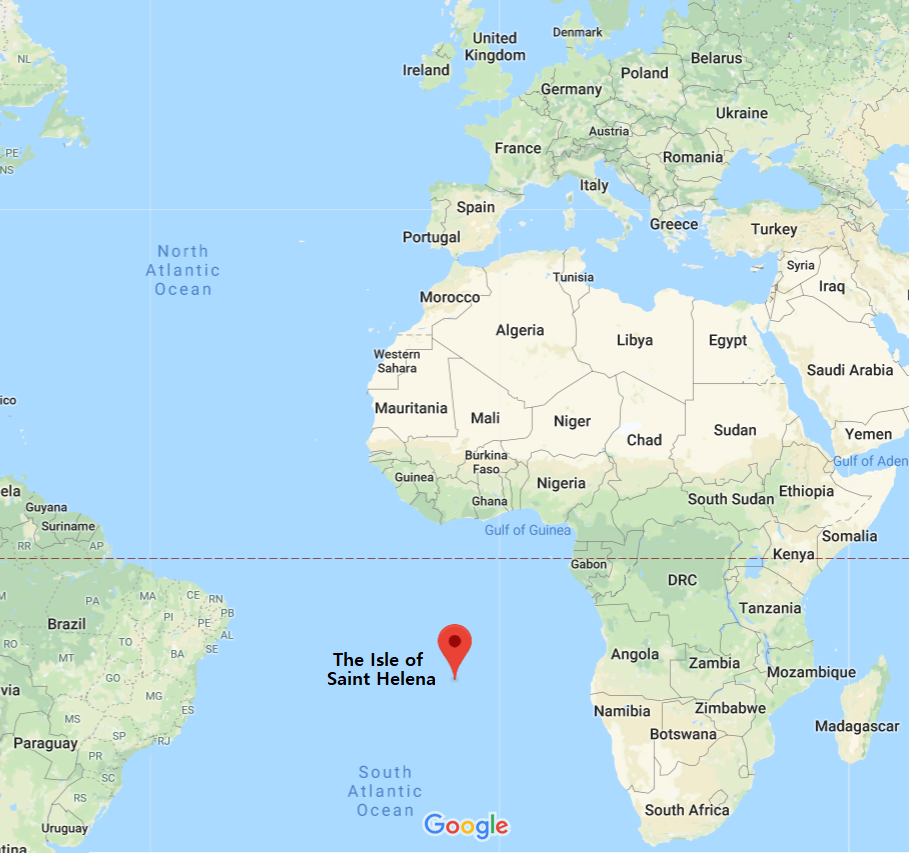A recent trip to the repair shop got me thinking about my relationship to the smartphone and the digitization of most aspects of life which it represents/induces/necessitates. I’ll try to approach this indirectly through a small handful of memories.
I distinctly remember once, in Seoul, in spring 2014, being teased by a then-acquaintance from Europe, both privately and publicly, for writing out a map on a piece of paper. I didn’t mind the teasing nor his attempts later that day to show others my hand-drawn map. It got the job done, and who can argue with results? The mockery had nothing to do with results but of form: It was analog! Get with the digital age, was the message.
The reason I remember this little incident is I was surprised with the confidence with which he mocked me, as if in 2014 I were telling him I’d send him something by fax or give him a movie on VHS, something just laughably obsolete such that he couldn’t even imagine doing it. That was the tone. Obviously he did still use pen and paper in some cases, but for navigation in a city from A to B? Who would do that?
I had created this little hand-drawn map to navigate to the Seoul city wall, with the plan to hike the half length from West Gate to East Gate along the northern arc, which only this intrepid acquaintance was interested in doing on a Saturday morning. Finding access to the path from a certain meeting point was not easy. It involved twists and turns through alleys, and I planned it out at home and traced out the route on paper, making a sketch map. I had a hard copy of it.
I had a Smartphone at the time and “data,” but the data was on a pay-as-you-go plan, which meant when it ran out I had to pay to recharge, which was an annoying process; in any case, I didn’t want to use data when not needed. I also wanted to plan out the route to make sure I knew what I was doing. But something in me in spring 2014 was still profoundly uncomfortable with navigating by “phone” (as we end up calling such devices, which are used as telephones about 0.1% of the time for many people).
The sketch-map served its purpose wonderfully and we didn’t get lost.
I remember how amused he was by this map. He called it something like “the cutest thing I’ve seen all year.” Later that day he told others about it and insisted I show it to them. He was making fun of me, but I don’t remember taking offense, because I was in my own heart making fun of anyone who would be stunned at a pen-and-paper sketch-map.
I remember this even seven years later because it was in the transition period between when making sketch-maps like that was reasonably normal in the 2000s, and when it was laughable, given the always-on interactive map in your pocket (i.e., your “phone”), certainly so by late-2010s and in leading circles already becoming laughable in the mid-2010s. To have made an used a map like that by the late-2010s, it would have to extraordinary circumstances or maybe somewhere far outside a city where phone signals were unreliable.
___________________
I have always had an ambiguous attitude about devices.
For whatever reason, I also didn’t get a basic cellphone until rather late, I think in the last half of my last year of high school. I never used SMS “text messaging” until 2007 and that especially because of one particular person, M. K.; as for Facebook, I registered an account in late 2007 but was seldom active, and very much actively avoid it now. Although I use the Messenger app to communicate with people I otherwise have no way to contact, I avoid actually signing in — the last I did was some time in 2019.
This is all related to another sometime internal discussion I have. When does the Internet Age begin?
There are a lot of landmarks one an point to but these generally amount to trivia. If you must choose a ‘0’ year or a ‘5’ year, which is the best to attach to the concept of “Start of the Internet Era”? Note this is really a social question and not a technical one. I know there was technically some predecessor to email even as early as the 1980s, and there was an active early Internet scene in the 1990s. But these do not do. I think it has to be 2010, by which time the infrastructure we understand as the Internet was really in place. The Smartphone wave in the years that followed rapidly gave us our world as we knew it for the rest of the 2010s and now into the 2020s (1.5 years down, not a good decade so far for me).
Mobile digital computing devices connected to the Internet had made rapid gains and by 2014, the idea of someone making and using a paper sketch map to navigate a tricky path to a destination was something to laugh at, for some. Five years earlier, it wouldn’t have been so.
As for my own relationship with the Smartphone. I had none at all until the very end of December 2013, when one was given to me as a gift. In the last days of that year, I was sick with flu and living in a tiny room in a goshiwon in Seoul (in what some Koreans have been known to call the worst part of Seoul due to the presence of Chinese and Korean-Chinese). It was in my windowless room in that place that I entered the Smartphone Age after recovering from the flu on or soon after New Year’s Day 2014. The “pen-and-paper map” incident followed a few months later.
This timeline, I should add, means that my entire cross-country (South Korea) hike attempt in September and October 2013 was done Smartphone-less. In fact, it was basically done without any phone. I had a non-smart phone I kept off about 99.9% of the time. It had a good dictionary (an “offline” one, which in the Smartphone Age became a rare commodity). In the 2020s, it seems hard to imagine someone similar to 2013-Me attempting the hike without Smartphone access, perhaps even trying t o navigate by Smartphone, which is probably not a good idea, but the point is I just imagine people would do so by default.
People aging into social consciousness in the past few years, and in the years to come, and my own children God-willing I have any, may think that smartphones were common much earlier than they were, and that the Internet Era was much earlier than it really was. Even into 2011, the Smartphone was still considered fairly unusual, even something for eccentrics. The attitude was already changing by then. The spring 2011 Arab protests were hailed by our media for being led by organizers with smartphones communicating on the run (an attitude towards political-dissidents’ use of technology which they turned against sharply by the late-2010s).
By the mid-2010s, the Smartphone was rapidly becoming the standard.
I remember a case of a birthday party in 2012 or 2013. A Korean male about my age and I were among the many invitees, at the notoriously difficult-to-navigate Bupyeong Underground. In recent years they’ve invested huge amounts of money in making it more navigable, but you’ll still get lost there. I somehow linked up with him on the way. The venue was Outback. We both got totally lost and spent about fifteen minutes going this way and that through the maze-like underground before finding the right way. One thing I think I remember is neither he nor I had an easy way to communicate with the party’s kakao groupchat because we did not have smartphones. In any case I am sure he didn’t have one, which surprised me for a Korean male in his twenties at the time, but so it was.
I distinctly remember being surprised in early-mid 2014 when A. L., a Singaporean classmate in my first-ever Korean class, told me she used Google Maps for absolutely everything in getting anywhere, for all navigation. This stunned me, and made me think the less of her, I think. Did it mean she couldn’t navigate on her own, but just followed the arrows on the screen? It seemed so, and that seemed ridiculous. I think she said as much, said she would be hopeless without Google Maps.
I remember wondering how much data A. L. was using, for in those days data was often bought and paid for in fixed amounts, and when it ran out, you were out for the month unless you bought more. I remember thinking it extravagantly wasteful when A. L. revealed she rented an unlimited-Internet emitter, at some high cost per day at the time, for all her time in Korea. This amounted to around two months at longest, and shorter trips at other times. I remember thinking this was technically possible but seemed inadvisable, an excessive expense, and probably bad for the soul.
By the end of the 2010s, it was increasingly the norm to outsource all navigation or geographical-anything to Google Maps or the local equivalent, but in 2014 was still within the transition period. She had been an early-mover in the general direction.
A. L. (the Singaporean totally reliant on Google Maps, same age as me), J., the male co-hiker from Northern Europe who made fun of my hand-drawn paper map, several years younger), and I were all classmates in what was for me my first Korean class, the start of several years struggling to learn Korean, off and on.
These two I mention had both mentally and socially transitioned to something like a full-digital life and worldview by early 2014 when I met them, to the point they could not conceive of analog-life in certain important ways, which means it had probably not been a recent thing (i.e., was earlier than 2013) for them. In these years of 2014 to 2016, my own lifestyle changed much as theirs had some years before that. I thought then, and I think now, that I was lucky to hold out as long as I did.
The Smartphone has changed my lifestyle, and from the perspective of 2014-Me, probably for the worse. Still I have made a point to make at least one several-day hiking trip per year. For it I prepare paper maps beforehand. This kind of travel is always more rewarding. As forday-to-day movements and places I know well, there is no need necessarily for any use of a map. (Except that I am so often looking at the bikeshare map for my hobby of bike rebalancing.)
I visited China in December 2019 and was surprised by how much stricter their Internet policy was than my previous visit in 2010. Basically I could not use the Internet at all in China in 2019 except in my hotel room, which I think was arranged by the hotel and connected to my passport. There was no such thing as a free public wifi. This meant absolutely no navigation-on-the-fly staring at one’s phone screen. To go places I needed a good paper map, or an offline digital map, or to navigate by feel and landmark. I used all three methods.
For all my talk of still hanging onto the pre-Smartphone spirit into the late 2010s, I must admit the experience of being forcibly offline in China was quite disorienting.
I was in China for some of the last days of the 2010s, December 2019, and was thinking a lot about the closing decade and what it meant for the world and for me. Had I used my time well? How had I changed? Those kinds of questions. But also observations on China, especially given my previous visit in 2010, the opening of the decade. One thing that certainly changed was the digitization of life, the smartphone in one’s pocket.
___________________
What were the 2010s?
The decade seems defined as the age of digitization of lifestyles more than anything else. A lot of the social and political movements of the 2010s were tied fairly directly to the march of digitization, mobile Internet, and the Smartphone. The memory-anecdotes I’ve recorded here are little signposts in the sand from one person’s little corner of experience. I’m sure similar things happened all over.
It’s occurred to me that the Flu Virus Panic of 2020-21 occurred very specifically because of this digitization, and that therefore we have a very important meta-lesson to learn which has nothing to do with masks, lockdown orders (a tragic entry into Global English, which I’d retroactively nominate for worst new word of 2020), PCR tests, “social distancing,” or any of the other jargon of the Panic.
The meta-lesson is that digitization turns out to have been a risk to our health in ways few appreciated, for without it we could have avoided an artificial Great Depression-style economic contraction and major social disruptions hitting hard the young or anyone in transition, and the ripple effects will be with us for years.
Since so many still want to cling to the Panic and its various doctrines, I don’t expect this will be announced from on high anytime soon, but this is the bigger lesson than even my complaints about the insane virus restrictions and the weird Virus Cult that emerged. It was digitization that did this, and the same mechanism has done much else. Something about the smartphone seems to create moral-panics which end up doing damage and causing deadweight losses to society. We haven’t grappled with how do deal with this, nor d we even see the problem.
People have come up with cute renderings of this, something like “the real contagion spread via social media.”
People have also said the 2009-10 Swine Flu Panic never quite got off the ground, even though there were so many similarities to the events of ten years later, and a common explanation for the big reaction gap is: “The 2009 Swine Flu was not as bad.” I say: No one knew exactly how bad or not bad it was. People made the decision to panic — and push panic, hard, in March 2020, and to hell with the consequences — without full information. Panic had its own logic not tie-able to some specific magnitude of threat.
This leaves us asking what the big differences were between 2009-10 and 2020-21 in the nature of our society. It’s obvious to me that the biggest difference is the always-on, hyper-connectivity. Nothing like that existed in spring 2009 when the Swine Flu Panic peeked its head over the abyss. The soon-forgotten Swine Flu Panic looked frankly quite a lot like the early stages of the Corona Flu Panic of 2020.
I was on my way to Korea for the very first time. In Tokyo our plane was boarded by a team of doctors in some kind of hazmat-esque gear to check passengers for flu symptoms. They did this on board. We all remained seated. It all seemed ridiculous to us. I remember specifically someone laughing that they sent on hazmat-suited people. We were aware they were talking about Swine Flu on the news but really no one cared.
As I force my mind back to that day (it being my first time in Asia, I was a little dazed in general, and would drop into the deep water all alone at the hagwon by the next day), I also come up with this:
The Japanese medial quarantine team offered surgical masks to each passenger. There was some half-hearted announcement that we were encouraged to wear them. This was an American plane, possibly United, and I am confident in my memory that virtually no one wore the masks, ignoring the request. To wear surigcal masks seemed unsettling, even like something from dystopian fiction.
My memory tells me I pocketed mine and never put it on. It must have eventually ended its life in a garbage bin, possibly on Korean soil, possibly even in my new inherited apartment somewhere near Lake Park, Ilsan.
In any case and in short, no one cared about Swine Flu, even with this public health theater performance staged by Japan. (The Korean side was much more relaxed and simply handed out cards which effectively asked: “Are you Sick? Yes [ ] No [ ]. Check one. Thx. Bye.”)
The raw-material for a Flu Panic was there, but it never took off. The gap in experiences makes the time gap of eleven years (spring 2009 vs. spring 2020) feel more like fifty, or more. How can culture have drifted that far in eleven years, from casual mockery of an incipient Flu Virus Panic (2009) to an uncritical, semi-fanatical, monomaniacal embrace of the same (2020)? What happened to us?
The biggest difference, I propose, is the smartphone and the Internet, as we’ve come to know it. No one on that plane that day in 2009 had a smartphone. No one anywhere did (with possible/arguable exceptions of a handful of journalist- or CEO-types who, for several years, often carried a device known as a Blackberry; even in the late 2000s I wasn’t quite sure what a Blackberry was). That’s what happened to us.
Blogging as a medium, especially in the way I do it, is not really an activity of the Smartphone era, which is why I feel better about doing it. Of course, the same kinds of critics such as he who mocked my pen-and-paper map in 2014 have for years mocked the blog as a medium. What if the cool guys are wrong? What if diving into full-on digitization wasn’t as good as was thought?






